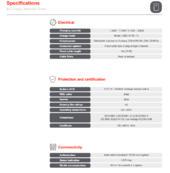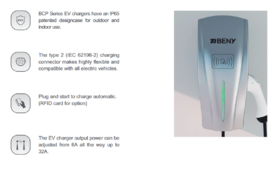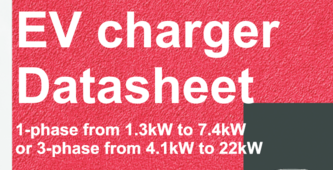premierautomotive
New Member
Hi DIY Solar Forum,
Thank you all firstly for being so open and supportive to newcomers like myself in the solar arena. I wanted to ask you all for your help in the planning of a system, that is exclusively for use to charge an EV vehicle. The plan is simple, but with anything solar, has many nuances that I'm not sure I fully understand, and ask for your help and suggestions in building out such a system.
I would like to receive PV power through panels, around 2-3kw capacity of panels, to directly charge a battery (5 or 10kw), which can then in turn have just a single connection to any standard EV vehicle charger.
My understanding is, the inverter capacity would determine the maximum power that the vehicle could charge at. Most vehicle home chargers are rated at 7.6kw charge speed single-phase, so a 8kw inverter should do the trick. The point of the system is for it to be an affordable alternative as compared to refueling from the grid, and definitely in comparison to fossil fuel costs, having a payback period of 2-5 years (depending if comparing to fuel costs or grid energy costs).
The car drives on average around 30km every day, and using a reverse conversion of kwh/100km, if the car model is consuming 15.5kw/100km, a 5kw battery should suffice. Should you over capacity this, so there is always 20% juice left, for battery life reasons?
Regarding the inverter, although 8kw is what would be recommended, I believe a 6kw system capacity is OK for our purpose, as that additional 1.6kw isn't going to make too much of a difference while charging in the evening, when idle at home, so a 6kw system can be acceptable, if the only difference is charge speed (it would mean a few minutes more in charge time based on the car km use specified above). In terms of inverter selection, we are using the same electricity split-phase setup as the US does, but I wondered whether since the application of this inverter is just for one purpose, would a off-grid inverter (cheaper) be OK to use? After reading many reviews and posts here, we really like the Deye systems for hybrid-split phase, but it seems unnecessary for this specific application? Am I right in the assumption that a off-grid inverter 6kw capacity that has PV input and battery storage functionality would be OK for our purpose? We are specifically looking at the Growatt SPF 6000 ES Plus model, spec sheet attached, but any suggestions you might have are welcome.
For the PV Panels, we plan to use Astronergy 620w panels, specs also attached.
For the batteries, we are considering to use Amy whom is famous on this forum for good and reliable well priced batteries, pre-built from their factory.
For the EV charger, we plan to use this Beny Charger, spec sheet also attached.
Questions
-Are my assumptions mentioned above of inverter correct?
-Will around 4-6 panels be appropriate for this inverter, as I had a bit of difficulty planning out the voltage voc calculation and chaining/paralleling the PV connections, as well as the isc short circuit capacity, some help here would be appreciated.
-Should you buy over capacity of batteries, as they should not drain below 20%, so eg if we need 5kw daily, its better to buy ~6.3kw of batteries so as not to drain the batteries completely and only up to 20%? Similarly if requiring 10kw, its better to buy 13kw batteries?
-Is this general idea smart to do, as you charge daily, rather than cycling the full battery of the EV, you are only constantly recharging the little bit you use everyday. Will it affect the battery life much of the vehicle by doing this?
-What would be required for example if you wanted to charge the vehicle in the daytime, directly from the sun, bypassing the battery? What inverter functionality would be required in this regard?
-I believe we do not need hybrid connectivity for this system, as it is much cheaper to just get a 2nd additional charger that is connected via breaker to the grid, in case the system is down or no sun for a few days.
- We get around 5 hours sun daily, year round, where I am.
Thanks everyone,
Appreciate your help.
Thank you all firstly for being so open and supportive to newcomers like myself in the solar arena. I wanted to ask you all for your help in the planning of a system, that is exclusively for use to charge an EV vehicle. The plan is simple, but with anything solar, has many nuances that I'm not sure I fully understand, and ask for your help and suggestions in building out such a system.
I would like to receive PV power through panels, around 2-3kw capacity of panels, to directly charge a battery (5 or 10kw), which can then in turn have just a single connection to any standard EV vehicle charger.
My understanding is, the inverter capacity would determine the maximum power that the vehicle could charge at. Most vehicle home chargers are rated at 7.6kw charge speed single-phase, so a 8kw inverter should do the trick. The point of the system is for it to be an affordable alternative as compared to refueling from the grid, and definitely in comparison to fossil fuel costs, having a payback period of 2-5 years (depending if comparing to fuel costs or grid energy costs).
The car drives on average around 30km every day, and using a reverse conversion of kwh/100km, if the car model is consuming 15.5kw/100km, a 5kw battery should suffice. Should you over capacity this, so there is always 20% juice left, for battery life reasons?
Regarding the inverter, although 8kw is what would be recommended, I believe a 6kw system capacity is OK for our purpose, as that additional 1.6kw isn't going to make too much of a difference while charging in the evening, when idle at home, so a 6kw system can be acceptable, if the only difference is charge speed (it would mean a few minutes more in charge time based on the car km use specified above). In terms of inverter selection, we are using the same electricity split-phase setup as the US does, but I wondered whether since the application of this inverter is just for one purpose, would a off-grid inverter (cheaper) be OK to use? After reading many reviews and posts here, we really like the Deye systems for hybrid-split phase, but it seems unnecessary for this specific application? Am I right in the assumption that a off-grid inverter 6kw capacity that has PV input and battery storage functionality would be OK for our purpose? We are specifically looking at the Growatt SPF 6000 ES Plus model, spec sheet attached, but any suggestions you might have are welcome.
For the PV Panels, we plan to use Astronergy 620w panels, specs also attached.
For the batteries, we are considering to use Amy whom is famous on this forum for good and reliable well priced batteries, pre-built from their factory.
For the EV charger, we plan to use this Beny Charger, spec sheet also attached.
Questions
-Are my assumptions mentioned above of inverter correct?
-Will around 4-6 panels be appropriate for this inverter, as I had a bit of difficulty planning out the voltage voc calculation and chaining/paralleling the PV connections, as well as the isc short circuit capacity, some help here would be appreciated.
-Should you buy over capacity of batteries, as they should not drain below 20%, so eg if we need 5kw daily, its better to buy ~6.3kw of batteries so as not to drain the batteries completely and only up to 20%? Similarly if requiring 10kw, its better to buy 13kw batteries?
-Is this general idea smart to do, as you charge daily, rather than cycling the full battery of the EV, you are only constantly recharging the little bit you use everyday. Will it affect the battery life much of the vehicle by doing this?
-What would be required for example if you wanted to charge the vehicle in the daytime, directly from the sun, bypassing the battery? What inverter functionality would be required in this regard?
-I believe we do not need hybrid connectivity for this system, as it is much cheaper to just get a 2nd additional charger that is connected via breaker to the grid, in case the system is down or no sun for a few days.
- We get around 5 hours sun daily, year round, where I am.
Thanks everyone,
Appreciate your help.





